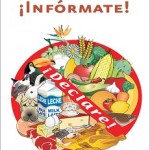Can I bring a turkey to Mexico? Or …What food can I bring to Rocky Point, version Nov. 2013
By Shandra Keesecker-Rivero
 The time has come once again when everyone begins to wonder about bringing turkeys or other holiday favorites to Mexico. Before we begin, please keep in mind frozen turkeys and holiday hams are generally available (though yes, more costly than the U.S.) at most local supermarkets and at Sam’s. In addition, many local restaurants will be serving Thanksgiving dinner and holiday meals throughout the season.
The time has come once again when everyone begins to wonder about bringing turkeys or other holiday favorites to Mexico. Before we begin, please keep in mind frozen turkeys and holiday hams are generally available (though yes, more costly than the U.S.) at most local supermarkets and at Sam’s. In addition, many local restaurants will be serving Thanksgiving dinner and holiday meals throughout the season.
For the past couple years, the SENASICA office (National Service of Health, Food Safety and Quality) of SEGARPA (Secretary of Agriculture, Ranching, Rural Development, Fishing and Feed) has continued to develop just exactly what type of food is permitted to bring across the border. A couple of years ago, the rule of thumb on holiday “meats” was two turkeys or one smoked ham. However, in recent months this seems to have changed and it has been difficult to get a straight answer in order to plan for holiday meals for those who like to shop in the U.S. and bring items down. It would appear that bringing meat of any kind, other than fish, is no longer much of an option – and the English section of the SENASICA site is not operating as all information is currently in Spanish. [http://www.senasica.gob.mx/?id=622 Scroll down to “List of Documents” (only available in Spanish at the moment).
Fowl
With specific reference to turkeys, SENASICA states “The import of refrigerated or frozen bird products, packed and sealed by health authorities is prohibited.”
With respect to smoked turkeys or chicken, SENASICA indicates:
“Must come packaged, with a label in Spanish or English and a seal from the health authority, from countries that meet the combination of MCRZI* zoosanitary requirements, and from plants that are authorized by Mexico.” *MCRZI (Zoosanitary Requirement for Import Consultation Module) is an online system containing a catalog of documents containing requirements established for the import of items of animal origin or for use or consumption by animals. The goal of the MCRZI is to prevent the entrance of animal diseases into Mexico (SENASICA, 2013).
Pork
With respect to pork, again SENASICA notes: “The import of fresh, refrigerated or frozen pork, packed and sealed by health authorities is prohibited.”
If you are considering a holiday ham, for products such as serrano ham or mature-boned hams “Must come packaged, labeled in Spanish or English with a seal from health authority. Must come from countries that meet zoosanitary requirements of MCRZI*, and only from plants authorized by Mexico. Artesanal products are not allowed.”
For a list of plants authorized by Mexico: http://sistemas1.senasica.gob.mx/PlantaAcreditada/
> Consulta General (General Consultation)
> Tipo de Planta (Type of Plant): Carnicos [Meat] (i.e. beef, fowl, etc.), Lacteos [Lactose,] Harinas y Rendimientos [Flour and byproducts], Cueros y pieles [Leather and hides]
> Pais Origen (Country of Origin): Estados Unidos de America (US), Canada, etc.
Give it some time to load, then you will see an Excel sheet icon in the lower right-hand part of the screen that indicates authorized plants from the selected country. Download and save.
Upon driving into Mexico, the different officials one sees at the border may include Hacienda (tax office for customs declaration) as well as SENASICA inspectors who are part of the Secretary of Agriculture, Ranching, Rural Development, Fishing and Feed (SAGARPA). The SENASICA office has been operating in Sonoyta for the past two years in an effort to enforce regulations regarding bringing meat, lactose, and other items (including pet food) across the border. Though this enforcement is relatively new to many of us who cross through the Sonoyta/Lukeville entry frequently, the regulations apparently have been in effect for quite some time.
In October, 2011 we ran our first note on guidelines on animals, plants, and products that may enter Mexico based on information from the official SENASICA site (www.senasica.gob.mx). These links are frequently moved, and though there is an English option in the upper right hand corner all text appears to remain in Spanish (Nov. 2013).
Bringing Agricultural Food Products *Of particular note, generally NO MEAT products are permitted
Bringing Hams & Cheeses *Note: Fresh cheese and home-made products are prohibited
Pet food / traveling with a pet In Mexico, only cats and dogs are considered to be pets, and must have vaccination records (health certificate) issued by a vet. No fee for travel with one or two pets.
“You may bring a day’s ration of pet food in a plastic baggie or container, accompanying your pet. You are allowed to bring unopened pet food that is packaged with labeling in Spanish and English that does not contain any ingredients of ruminant origin (such as lamb or beef) and stamped by the Health Authority of the country of origin. For your information, there is pet food available in Mexico that is registered and authorized by Mexico’s Health authority, SAGARPA-SENASICA.”
NOTE: There are NO FINES for carrying food (or pet food) goods, though upon detection you will need to either return these to the US (for example, perhaps drop off at Lukeville gas station) or have the items taken from you.
Just about everyone in town has an experience to share about having their groceries inspected at the border and sometimes having certain items “confiscated”, so in the end you may look forward to creating your own “food escapade” or just plan on visiting Rocky Point’s local markets!
Now, for information on customs declarations : https://rockypoint360.com/declarations-entering-mexico/
